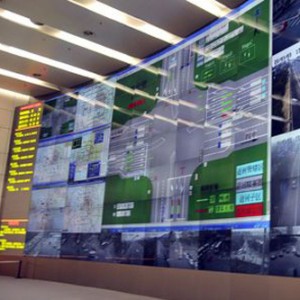
Beijing introduced an integrated road transport system to address the worsening traffic conditions and to improve the commuting situation. Having an integrated system was a recognition that concerted action was necessary, requiring coordination among a number of different government agencies, to achieve results. The objectives were to improve urban transport efficiency, promote socio-economic development, make land use development more efficient, create a good transport environment and align parking prices with transport management.
The system was developed by implementing the following three practices:
- Extension of the road infrastructure. The average road network density on particular ring roads was improved to 2.62 km/km2 and 4.66 km/km2, respectively, in 2000. Road infrastructure development proceeded by organizing a highly efficient road network in several corridors, which included throughway corridors, distributing backbone roads, sub-arterial roads and spur tracks;
- Parking management. To improve parking management, parking fees were increased and differentiated for different times of the day and by region;
- Intelligent transportation systems. Beijing first established 12 intelligent transportation systems monitored by a transportation controlling centre. Also established were a command and deployment system; a transportation monitoring system; a signal controlling system; a transportation induction system; a global positioning system (GPS) for traffic police vehicles; a “122” call-the-police system for traffic accidents; and an automatic monitoring system for traffic violations. Other developments included a traffic information collection system, a computer system for traffic management, a digitalized management system and an information management system.
These efforts have reduced traffic flow in central urban areas, reduced congestion and improved traffic management efficiency. The increased parking fee has also brought in additional revenue.
Case study courtesy of the UNEP Publication, Reducing Emissions from Private Cars: Incentive measures for behavioural change.